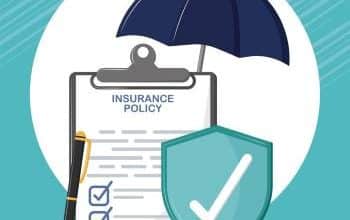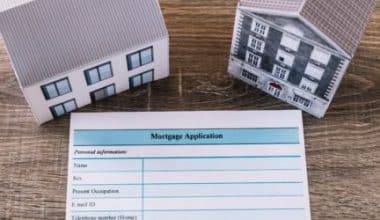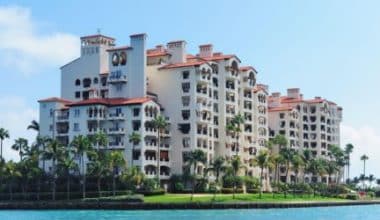Most homeowners’ insurance policies cover personal property, but they frequently do not provide adequate coverage. That is why it is critical to have a separate policy that covers your things, whether they are in your home or not.
In this post, we’ll go over everything you need to know about property insurance, including what it covers and what it doesn’t, how to compare quotes from numerous insurers, and much more!
What Is Property Insurance?
Property insurance is a broad term for a collection of policies that provide property owners with either property protection coverage or liability coverage. This insurance compensates the owner or renter of a structure and its contents in the event of damage or theft, as well as a person other than the owner or tenant who is wounded on the property.
Property insurance coverage might include homeowners insurance, renters insurance, flood insurance, and earthquake insurance. A homeowner or renter policy will normally cover personal property. The exception is high-value and expensive personal property, which is normally protected by purchasing an extension to the policy known as a “rider.” If a claim is made, the property insurance policy will either reimburse the insured for the actual cost of the damage or the cost of replacing the problem.
How Does Property Insurance Work?
Property insurance normally covers a limited number of weather-related calamities, such as damage caused by fire, smoke, wind, hail, the effects of snow and ice, lightning, and more. Property insurance also covers vandalism and theft, as well as the structure and its contents. It also includes liability coverage if someone other than the property owner or tenant is injured and decides to sue.
A variety of events, including tsunamis, floods, drain and sewage backups, seeping groundwater, standing water, and a variety of other water sources, are typically not covered by property insurance. Mold and earthquake damage are typically not covered.
Furthermore, most policies will not cover extreme occurrences such as nuclear events, acts of war, or terrorism.
Homeowners insurance, renters insurance, flood insurance, and earthquake insurance are all types of property insurance.
Types of Property Insurance Cover?
#1. Homeowners Insurance
For single-family homes, homeowner’s insurance often offers coverage. Policies include the following:
- Dwelling coverage protects your home from damage.
- Personal property coverage, often known as contents coverage, protects your possessions.
- Personal liability insurance protects you against unintentional injuries and property damage caused by you or other members of your family to others.
- Medical payments coverage: pays for minor medical expenditures for people who are harmed on your property without fault, excluding members of your household.
- Additional living expenses, commonly known as loss of use coverage, reimburse you for additional expenses if you are compelled to reside somewhere else temporarily due to damage covered by your homeowner’s policy.
Standard policy types for home insurance include HO-1, HO-2, HO-3, HO-5, HO-6, and HO-8. An HO-3 policy is the most common sort of home insurance, and it covers your house against all problems save those stated in the policy, as well as your items for difficulties covered in the policy, such as a fire. Although many house insurers do, not all of them use these typical policy categories.
You can add endorsements, such as valuable items coverage, water backup/sump pump coverage, and ordinance or law coverage, to a homeowners insurance policy in addition to the standard coverage it offers.
Types of Home Property Insurance
| Standard type of home insurance | What’s covered |
| HO-1 | 10 specific problems for the house only, such as fire |
| HO-2 | Covers condominium owners for damage to personal belongings, walls, floors, ceilings, and renovations made after buying condo; provides liability insurance, medical payments, and additional living expenses coverage |
| HO-3 | 16 specific problems for the house and belongings, as well as personal liability, medical payments, and additional living expenses coverage |
| HO-5 | Covers all problems except those named in the policy for the house and your belongings; includes liability insurance, medical payments, and additional living expenses coverage |
| HO-6 | Coverage for older homes, such as landmarks and historic homes; only protects against 10 problems, such as fire and theft; offers liability, medical payments, and additional living expenses coverage |
| HO-8 | Coverage for older homes, such as landmarks and historic homes; only protects against 10 problems, such as fire and theft; offers liability, medical payments and additional living expenses coverage |
#2. Condo Insurance
Condo insurance, often known as HO-6 insurance, covers the following:
- Personal property
- Personal Liability
- Medical expenses
- Extra living expenditures
Condominium insurance covers damage to a unit. It excludes housing coverage. If something happens to the exterior of your condo building or common space, the master insurance policy of your homeowner association (HOA) should cover the repairs.
Additionally, you can purchase loss assessment coverage, which will cover any damage to common areas not covered by an HOA’s insurance policy. If you and other HOA members share the cost of repairs, this coverage is useful.
#3. Flood Protection Insurance
You may be obliged to carry flood insurance if you own property in a flood zone. This sort of property insurance covers the following:
- Your home
- Personal effects
In contrast to home insurance, flood insurance often does not cover additional living expenses or loss of use if you must temporarily relocate from your home.
Because most property insurance policies, including home insurance, do not cover flood damage, flood insurance might be useful even if you do not reside in a flood zone. The majority of property owners obtain coverage through the National Flood Insurance Program (NFIP); however, some insurers offer private flood policies. Private flood insurance policies may have higher coverage limits than NFIP policies.
Flood and earthquake damage are not covered by standard homeowner insurance.
#4. Earthquake Coverage
If your house or belongings are damaged or destroyed as a result of an earthquake, your property insurance policy will most likely not cover the loss. Consider earthquake insurance if you reside in an earthquake-prone area.
Most earthquake insurance policies offer coverage for:
- Dwellings and additional structures such as garages and sheds.
- Private property
- Loss of usage if you are unable to dwell in your home due to damage
You can add earthquake insurance to another property insurance policy as an endorsement.
#5. Renters Insurance
If you rent a property, you should think about getting renters insurance, commonly known as HO-4 insurance, which covers:
- Personal property insurance
- Liability Insurance
- Guest injury medical payments and insurance
- Loss of use insurance
Renters insurance does not cover dwelling coverage because tenants do not own the property, but landlords can purchase it. Renters insurance may be required by landlords as part of a lease agreement.
#6. Landlord Insurance
Landlord insurance is a sort of property insurance that covers landlords, such as apartment building owners. It includes the following:
- Protection for the home and other structures
- Coverage for landlord-owned things
#7. Liability Insurance
Landlord insurance does not cover personal belongings or the liability of tenants (only renters insurance does).
Personal property insurance covers belongings used at the property or shared by tenants in a landlord insurance policy. Personal property insurance, for instance, would cover a lawnmower, snow blower, or shared washer and dryer.
If the building is damaged and must remain vacant while being repaired, landlord insurance may cover lost rental income.
#8. Mobile Homes Insurance
You can purchase mobile home insurance, also known as HO-7 insurance, if you live in a mobile or constructed house.
Similar to regular home insurance, mobile home insurance covers your residence.
- Private property
- Personal responsibility
- Medical expenses
- Extra living expenditures
There may also be endorsements available for issues like trip/transportation coverage, which covers your mobile home while it is being transferred to another place.
Understanding Property Insurance
Replacement cost, actual cash value, and extended replacement costs are the three forms of property insurance coverage.
- Replacement cost covers the expense of repairing or replacing property of the same or equivalent worth. Replacement cost values, rather than cash values, are used to determine coverage.
- Actual cash value coverage reimburses the owner or renter for the cost of replacement minus depreciation. If the destroyed item is ten years old, you will receive the value of a ten-year-old item rather than a new one.
- If building prices have increased, extended replacement costs will pay more than the coverage limit; nevertheless, this will normally not exceed 25% of the maximum. The limit is the highest amount of benefit that an insurance company will pay for a certain situation or incident when you purchase insurance.
A property insurance premium is the fee paid to an insurance provider for property coverage.
There are a number of factors that affect how much you pay for your premium, including:
- Your property’s worth: In general, the more valuable your home and its contents are, the higher your premiums will be. This is because it costs more to replace or repair them if something goes wrong than it does for a cheaper property.
- Location: The location of your home influences the likelihood that someone may break into or damage it. If you reside in a neighborhood with a high crime rate, the likelihood or risk factor will be higher than if you live in a suburb where everyone peacefully goes about their everyday lives. The same is true if you live in an area prone to natural disasters.
What Does Property Insurance Cover?
- Property insurance covers your house and other structures, as well as the contents of your house.
- It also covers responsibility if someone is injured or something is damaged on your property.
- Property insurance will pay to repair or replace damaged objects and will protect you financially if someone sues you after being injured at your home.
- It can also help restore business income, whether it was lost due to property damage or because personnel were unable to work due to an emergency event like fire, flood, or theft.
- Depending on the circumstances, property insurance also covers a portion of your legal and medical expenses. For example, if someone slips and falls in your driveway, property insurance will cover up to a specific amount of that person’s medical expenses. Property insurance may cover part or all of their legal bills if they sue you for their injury and win.
What Doesn’t Property Insurance Cover?
Property insurance does not cover some types of damage, whether caused by a substantial risk or not. It would not, for example, cover damage caused by
- Termites, insects, or rats
- Rot
- Rusted Mold
- Intentional harm
Each type of policy also has its own set of exclusions. Floods and earthquakes, for example, are often not covered by home or commercial property insurance. Flood and earthquake policies would cover these separately.
Furthermore, a property insurance policy would not cover the normal wear and tear that the property experiences as it matures. For example, if your roof was damaged in a hailstorm, the cost of repairs or replacement would most likely be covered by homeowners insurance.
However, if the roof is deteriorating due to age, your insurance will not cover the cost of replacement.
Certain high-value objects, such as jewelry, artwork, and antiques, have reduced coverage limits under a standard homeowners policy unless supplemental coverage is acquired. As a result, if a loss happens, the item will not be fully covered.
How to Make a Home Insurance Claim
You can file a claim with your property insurance company if your home or personal possessions are destroyed. The general procedure is as follows:
- Notify your insurance provider: Please inform your insurance carrier of the loss. Confirm if the cause is covered by the policy with the insurer or agent. You may file a claim with many insurance carriers online. You will be given step-by-step directions on how to file your claim, including what documentation you must submit.
- Perform emergency repairs: Make temporary repairs to your home if you need to safeguard it from the weather after it has been damaged. If a tree falls through a window during a storm, for example, you should cover the window to prevent further damage. However, do not undertake any more repairs until the insurance adjuster has inspected the damage. Keep your receipts and send them to your insurance company for reimbursement.
- Collect evidence of the loss: You should produce evidence of the loss, such as photos and videos of the damage, as part of the claim procedure. You might utilize a home inventory to verify the cost of damaged personal items. If there is a police report (for example, with a theft claim), you should submit it when filing the claim. One of the most common homeowners insurance claims blunders is failing to document the damage after a claim.
- Wait for the adjuster to arrive. Your insurance provider may send an adjuster (or even a drone) to assess the damage, depending on the severity of the damage. This assists them in better understanding the cost of repairing or rebuilding your property.
Read Also: HOW TO GET INSURANCE TO PAY FOR WATER DAMAGE: Simple Steps
- Submit your claim documentation: Submit everything to the insurance company once you’ve completed all of the claim papers and gathered all of your evidence. The next steps should be communicated to you by an agent.
- Wait for your settlement: The final step is to sit back and wait for your claim to be processed and investigated. When your claim is approved, your insurance company will send you a settlement cheque.
How to Purchase Property Insurance
To obtain property insurance, first call an insurance company, broker, or agent and describe the objects you wish to insure. You may be able to browse policies and their information online or through the company’s app. When attempting to obtain a quote, this may also be an option.
- WHAT IS LOSS OF USE COVERAGE IN HOME INSURANCE?
- DWELLING INSURANCE: How Much Dwelling Coverage You Need
- Business Umbrella Insurance: What Is It & Who Should Get It?
- BUSINESS PERSONAL PROPERTY INSURANCE: What Is It & Who Needs It?
- Cheap Small Business Insurance: Best of 2023





